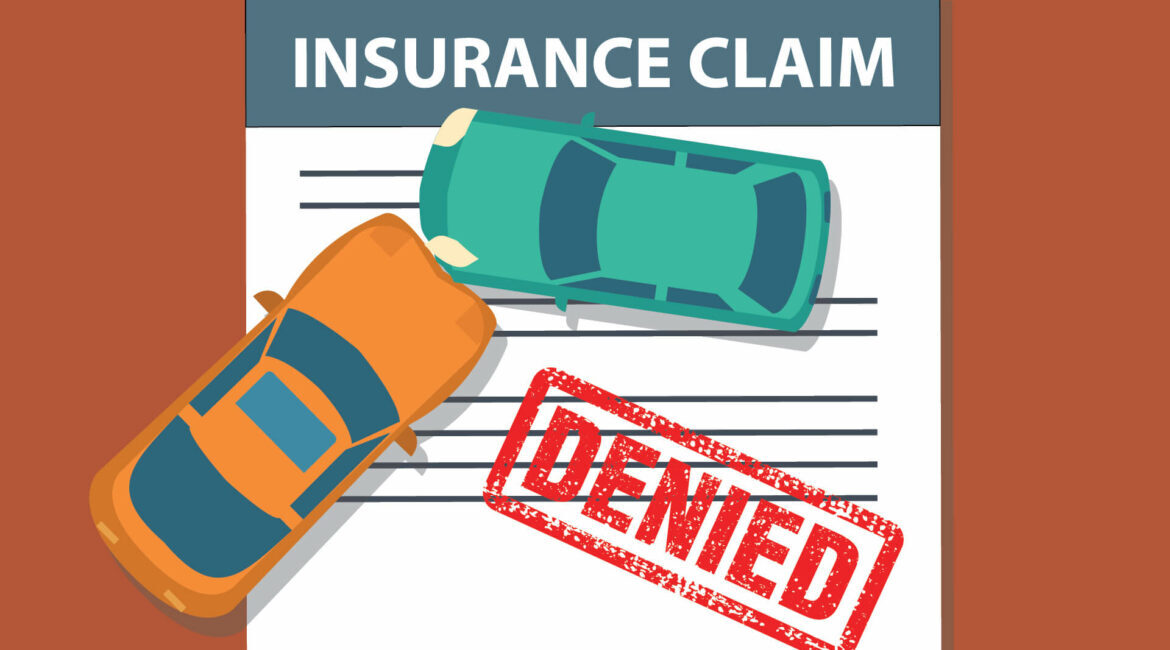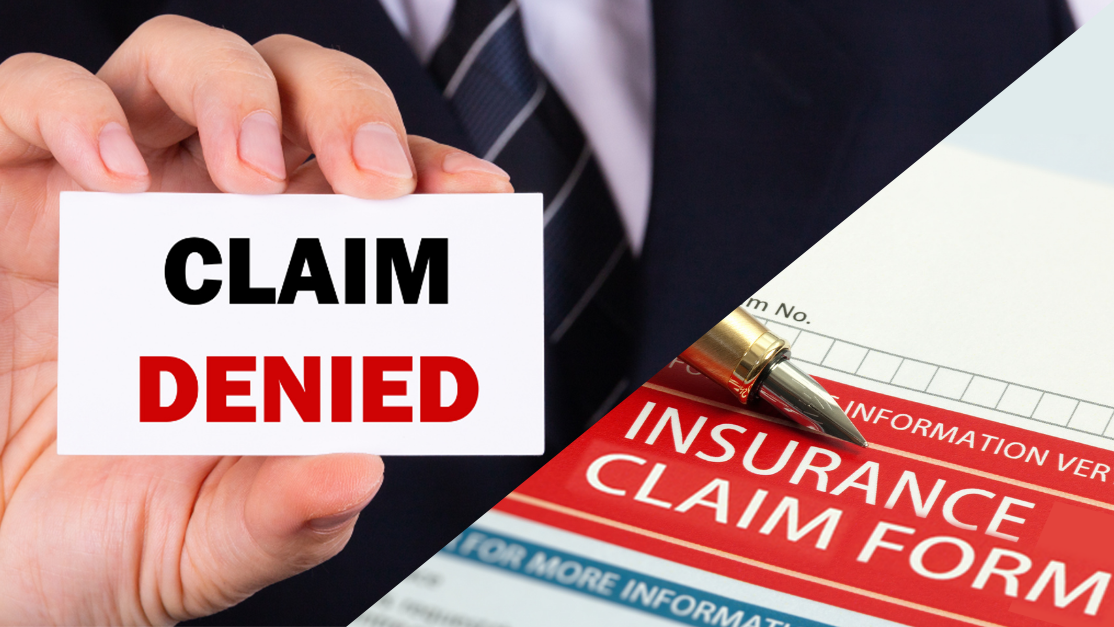If your insurance claim is denied, review the denial letter and policy to understand the reason. Next, prepare to appeal the decision by gathering supporting documents.
Navigating the complex world of insurance claims can be frustrating, especially when you face a denial. Dealing with a rejected claim requires prompt and strategic action to ensure your rights and interests are protected. Understanding your insurance policy’s fine print is critical in identifying the grounds upon which your claim was denied.
It’s essential to act quickly to address any issues and provide additional information or clarification that may reverse the decision. By arming yourself with the right documentation and a clear understanding of the appeals process, you can effectively challenge an unfavorable outcome. This introduction sets the stage for policyholders to approach a denied insurance claim with confidence, ensuring they’re ready to take the necessary steps towards a potentially successful appeal.
Dealing With Denied Insurance Claims
Receiving a denial on an insurance claim can be frustrating. This section of the blog aims to guide you through the steps to take if you find yourself facing this challenge. Knowing the right approach can turn the situation around.
Initial Reactions To A Denied Claim
Stay calm and assess the situation. An insurance claim denial is not the final word. Take a deep breath and prepare to review the details of your claim and the insurance company’s reasons for denial.
Reading The Fine Print: Policy Details Matter
Understanding your policy is crucial. Insurance documents are complex, and the specifics matter. Examine your policy closely to pinpoint exactly what is covered and what is not. This knowledge is powerful when disputing a denied claim.
Look for the following in your policy:
- Coverage limits
- Exclusions and exceptions
- Claim filing process
- Deadlines for filing
It’s essential to align your claim with your policy’s stipulations. If your situation falls within the scope of your coverage, gather evidence to support your stance.
Next steps include:
- Documenting communication with the insurance company
- Gathering additional evidence if needed
- Submitting a formal appeal
A denied claim can be overturned with the right approach. Understanding your policy and the reason for denial is the first step to a successful appeal.

Credit: streamlineautobody.com
Navigating The Appeals Process
Receiving a denial on an insurance claim can be disheartening. Fear not. An appeals process is in place for such scenarios. Understanding this process empowers policyholders to contest denials effectively. The guide below walks through the necessary steps to appeal a denied insurance claim.
Step-by-step Guide To Filing An Appeal
- Review the Denial Letter: Look for the reason your claim was denied. It’s in the letter.
- Understand Your Policy: Read your insurance policy again. Know what’s covered and what’s not.
- Contact Your Insurance Company: Ask them about the appeals process. They will give you instructions.
- Fill Out Required Forms: Complete all forms for the appeal. Do this correctly.
- Submit Within the Deadline: Note the appeal deadline. Missing it could mean a lost chance to appeal.
- Follow Up: Keep in touch with the insurance company. Make sure they received your appeal.
Gathering Evidence To Support Your Case
Strong evidence is crucial for a successful appeal. Here’s what to gather:
- Medical Records: Collect all records related to your claim. These show the necessity of the service or treatment.
- Doctor’s Statement: Get a letter from your doctor. It should explain why the treatment was necessary.
- Research: Find articles or studies that support your case. This shows the treatment is effective and needed.
- Personal Statement: Write a clear and concise statement. Tell your story and why the claim should be paid.
Preparing your appeal with the right evidence can turn a denial into an approval. Take time to gather and organize your information.
Exploring Alternative Solutions
Receiving a denial on your insurance claim can be disheartening. Fear not, as numerous paths remain open for those willing to explore alternative solutions. The journey doesn’t end with a denial letter in hand; it’s merely a detour towards a different strategy. Let’s navigate through the options available to turn that denial into approval.
Seeking Help From Consumer Advocacy Groups
Don’t overlook the power of consumer advocacy groups. These organizations specialize in supporting individuals facing unfair claim denials. They provide guidance on how to handle disputes with insurance companies. Below is a list of steps to engage with these helpful resources:
- Research local consumer advocacy groups.
- Contact them and explain your situation.
- Follow their recommended action plan.
- Utilize their expertise to bolster your claim.
Considering Legal Action: When To Hire An Attorney
Sometimes, taking a legal stance is necessary. Hiring an attorney can amplify your voice against insurance giants. Here’s a quick rundown on when legal representation might be your best course of action:
| Situation | Action |
|---|---|
| Claim complexity | Seek a lawyer’s expertise. |
| High claim value | Protect your interests. |
| Bad faith denial | Challenge the insurer legally. |
Select a legal expert with experience in insurance law. Ensure they understand your specific case. A good attorney will evaluate your claim, gather necessary evidence, and negotiate with the insurance company on your behalf. They can also represent you in court if needed.

Credit: yoshalawfirm.com

Credit: www.napolilaw.com
Frequently Asked Questions
How Do I Respond To A Denied Insurance Claim?
To respond to a denied insurance claim, first review the denial letter for specifics. Check your policy details to understand coverage limits and exclusions. Gather all relevant documents and evidence. Contact your insurance company to clarify or dispute the denial.
Consider consulting a legal expert if necessary.
What Happens If An Insurance Claim Is Denied?
If an insurance claim is denied, you have the right to an appeal. Review the insurer’s decision, gather supporting documents, and submit a formal appeal to challenge the denial. Legal advice may also be beneficial.
How Do I Resolve A Denied Claim?
Review your denied claim for errors. Contact your insurance provider to understand the denial reasons. Submit a written appeal with supporting documents. Follow up regularly until you receive a response. Consider seeking help from a claims specialist if necessary.
Conclusion
Facing a denied insurance claim can be daunting, but with the right approach, you can navigate through it. Start by reviewing your policy and denial letter carefully. Don’t hesitate to seek clarification from your insurer or consult a legal expert.
Remember, persistence and knowledge are key to effectively handling claim denials and securing your entitled benefits.
